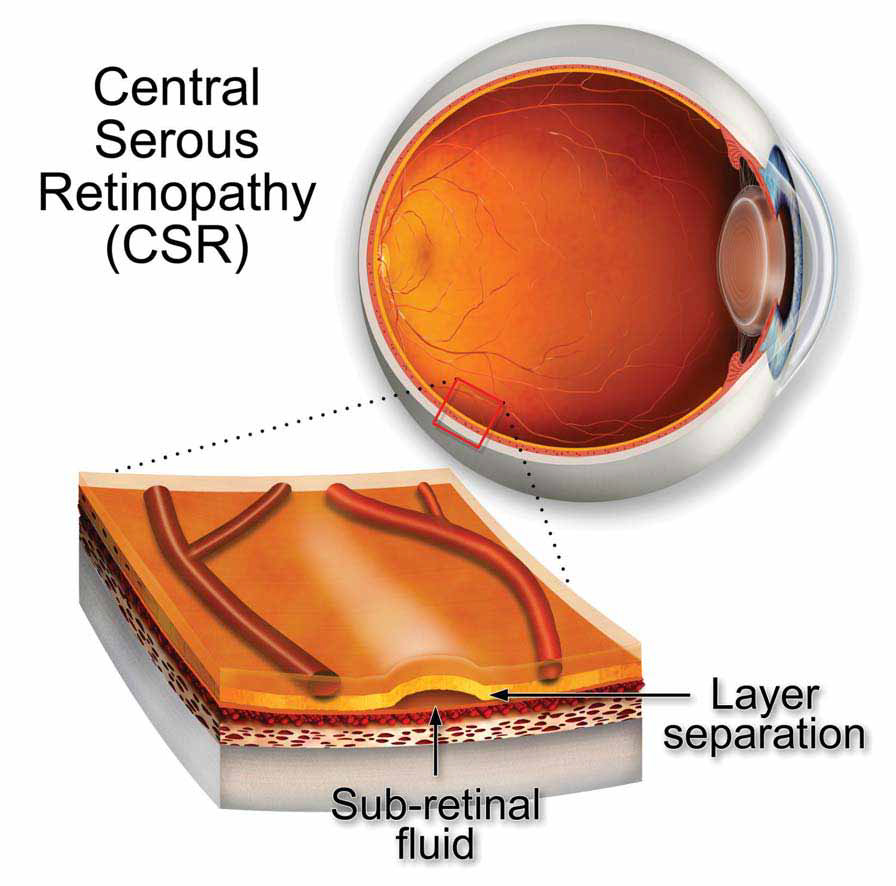Central Serous Retinopathy

Central serous retinopathy (CSR), also known as central serous chorioretinopathy (CSCR) is a problem that affects the macula. The exact cause of CSR is not well understood. Blood vessels that lie underneath the central retina begin to leak causing a blister of clear fluid to accumulate. This problem is somewhat similar to a water blister that forms under the skin. This "water blister" beneath the macular leads to blurred central vision, wavy or distorted vision, or a central blind spot.
CSR affects men more often than women and usually occurs in young adults between the ages of 25 and 50. In certain people, stress is thought to be a potential cause of CSR.
Diagnosis: Usually the diagnosis of CSR can be made by a direct clinical examination of the retina. Fluorescein angiography and optical coherence tomography (OCT) are also useful to confirm the diagnosis and gather additional information about the extent and severity of the problem.
Treatment & Prognosis: Most patients with CSR do not require treatment, since the fluid usually absorbs gradually over a period of months. In cases where visual recovery is delayed or under specific clinical indications, laser treatment may be recommended to seal the fluid leak and help the vision improve more quickly. The majority of patients (80-90%) will have significant visual improvement as the "water blister" resolves. However, many will have some degree of mild visual blur or distortion after the active leakage has stopped, and there is a 40-50% chance of recurrent leakage in the same eye.
